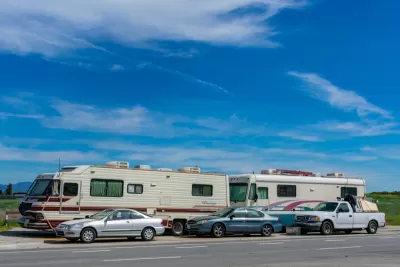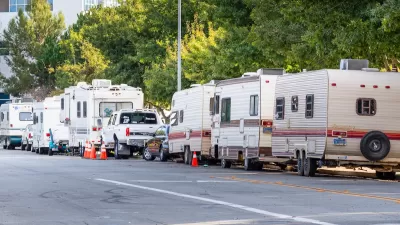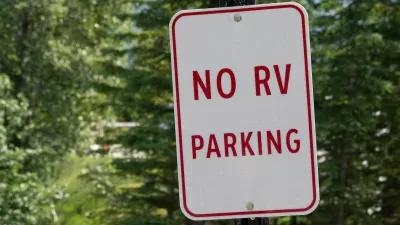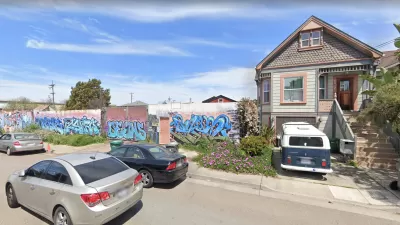Lakewood is taking an aggressive approach to homeless people sleeping in cars on public streets.

"Lakewood City Council unanimously passed a measure this week barring people from parking RVs or travel trailers on public streets anywhere in Lakewood, a restriction that had previously applied only to residential areas," reports John Aguilar.
The city was responding to the recent appearance of RVs parked on streets "amongst a collection of federal offices, Jefferson County School District buildings, and the headquarters of Christy Sports…" The city has received multiple complaints about the presence of the vehicles on streets.
According to Aguilar, the decision reconfigures the latest front in the Denver region's homeless crisis, as documented in an article published earlier in September.
Homeless advocacy organization Family Tree is organizing an effort to help the people living in RVs in Lakewood to relocate. "But Family Tree CEO Scott] Shields acknowledged the task will not be easy given the lack of available affordable housing in and around Denver."
Lakewood recently attracted national planning news for a debate about the environmental effects of the city's recently approved cap on new housing.
FULL STORY: Lakewood puts an end to RV parking, shutting down makeshift solution to homelessness

Planetizen Federal Action Tracker
A weekly monitor of how Trump’s orders and actions are impacting planners and planning in America.

Trump Administration Could Effectively End Housing Voucher Program
Federal officials are eyeing major cuts to the Section 8 program that helps millions of low-income households pay rent.

The 120 Year Old Tiny Home Villages That Sheltered San Francisco’s Earthquake Refugees
More than a century ago, San Francisco mobilized to house thousands of residents displaced by the 1906 earthquake. Could their strategy offer a model for the present?

Washington State Legislature Passes Parking Reform Bill
A bill that would limit parking requirements for new developments is headed to the governor’s desk.

Missouri Law Would Ban Protections for Housing Voucher Users
A state law seeks to overturn source-of-income discrimination bans passed by several Missouri cities.

Op-Ed: Looking for Efficiency? Fund Intercity Buses
Much less expensive than rail, intercity buses serve millions of Americans every year, but public subsidies are lacking.
Urban Design for Planners 1: Software Tools
This six-course series explores essential urban design concepts using open source software and equips planners with the tools they need to participate fully in the urban design process.
Planning for Universal Design
Learn the tools for implementing Universal Design in planning regulations.
Ada County Highway District
Clanton & Associates, Inc.
Jessamine County Fiscal Court
Institute for Housing and Urban Development Studies (IHS)
City of Grandview
Harvard GSD Executive Education
Toledo-Lucas County Plan Commissions
Salt Lake City
NYU Wagner Graduate School of Public Service





























